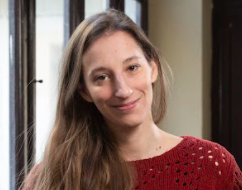Ezt a cikket 2022
decemberében írtuk.
A benne lévő
információk azóta elavulhattak.
In the third quarter of Lakmusz’s operation, we again reached nearly half a million people. Read our quarterly report here.
Having met our commitments for Lakmusz full-year readership by mid-year, the third quarter gave us more room for experimentation alongside our core activity.
One of the most difficult tasks for organisations fighting the spread of false and misleading information is to disseminate content. Those who regularly read fact-checking sites as part of their own conscious media consumption tend to be less susceptible to disinformation, and vice versa: those who are most exposed to misleading news are the least likely to read the sites that deal with it.
Since the launch of Lakmusz, we have been involved in a number of initiatives that seek to address this contradiction.
In a project with the cso Civil College Foundation (CKA), we visit schools and meet with disenfranchised children and their parents, and talk with them about the spread of false and misleading information. Members of the editorial team have also held several workshops for high school and university students, NGOs and journalists, and we will soon launch the Lakmusz volunteer community.
The aim of these experiments is not only to increase the reach of Lakmusz, but also to foster critical, balanced media consumption among as many people as possible.
Content
Over three months (12 July – 11 October), 55 articles were published, out of which 40 were fact-checks. During this period, we found that the main disinformation narratives were in connection with the domestic political and economic aspects of the war.
Of our fact-checks, 12 were about the Russian-Ukrainian war (and its economic impact), 27 were about public life and politics, and 7 were about public health and science.
In addition to our fact-checks, we have also produced a series of articles that seek to explore the disinformation environment from different perspectives:
- We’ve compiled a list of suspicious signs that allow readers to spot financial scams, and in one particular case, we’ve also recorded a phone conversation with the scammers,
- We delved into the world of alternative social media platforms,
- In a series of articles, we investigated a network that spreads Orbanist-Putinist messages on social media, and
- We analysed how a parallel reality is being constructed in the pages of daily papers, spread in the Hungarian countryside.
Readership
In the third quarter of our operation, we reached 483,000 readers, bringing the total to 1.6 million. Our most read articles were:
Egy nyáron át terjesztette megalapozatlanul a kormánypárti média, hogy az Ukrajnának juttatott fegyverszállítmányokat szétlopják – 116 thousand readers
Amiről a kormányzati média hallgat: hányan tüntettek tegnap a közoktatásért? – 35 thousand readers
Így épül párhuzamos valóság a megyei lapokban – 28 thousand readers
Nem vásároltak amerikai multik akkor földet Ukrajnában, mint az Olaszország teljes termőterülete – 26 thousand readers
A kevert fajú népektől az orosz szankciókig – Orbán tusványosi beszédének 6 állítását ellenőriztük – 24 thousand readers
Lakmusz is also growing its audience on social media:
Facebook – 7377 followers (7% increase compared to the previous quarter)
Instagram – 1659 followers (16% increase compared to the previous quarter)
Twitter – 856 (20% increase compared to the previous quarter)
Newsletter – 566 subscribers – (16% increase compared to the previous quarter
TikTok – 271 followers
We continue to produce predominantly traditional text-based articles, but we are also increasingly using other formats:
We have produced 22 visual information cards optimised for social media, summarising the key points of our fact-checks in a short, easily accessible and shareable format. We also launched the Lakmusz TikTok channel, where we posted 9 videos. The most popular one has reached nearly 15,000 views and was about whether Switzerland really does threaten people who overheat their homes with prison sentences.
by Blanka Zoldi, editor-in-chief and Peter Erdelyi, director
A szerzőről

Zöldi Blanka
Kövess minket!
Ne maradj le egy anyagunkról sem, kövess minket máshol is!